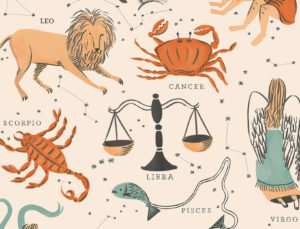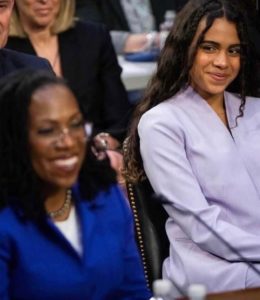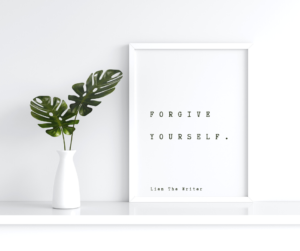In “The Courage to Exist in Daylight,” Tricia Kucinski bravely shares her journey of self-discovery, healing, and the complexities of identity through the lens of her Native American heritage. With a unique blend of autobiographical fiction, Tricia crafts a powerful narrative that not only highlights her personal experiences on the Wind River Indian Reservation but also sheds light on the often-overlooked stories of mixed-race individuals. In this interview, we delve into the inspiration behind her book, the emotional challenges she faced while writing, and the profound lessons she hopes readers will take away. Join us as Tricia offers insights into navigating grief, embracing authenticity, and the importance of finding joy amidst life’s struggles.
1. Can you share more about the inspiration behind “The Courage to Exist in Daylight”?
My initial inspiration for my book was solely that I thought I had an important story to tell. I felt like I had something big to get off my chest, and had a sense that it would be meaningful to other people.
The further I got in the process, I really saw how limited peoples’ view of Native American history, social issues, etc were, and I had to take several steps back to make sure I did right by the story.
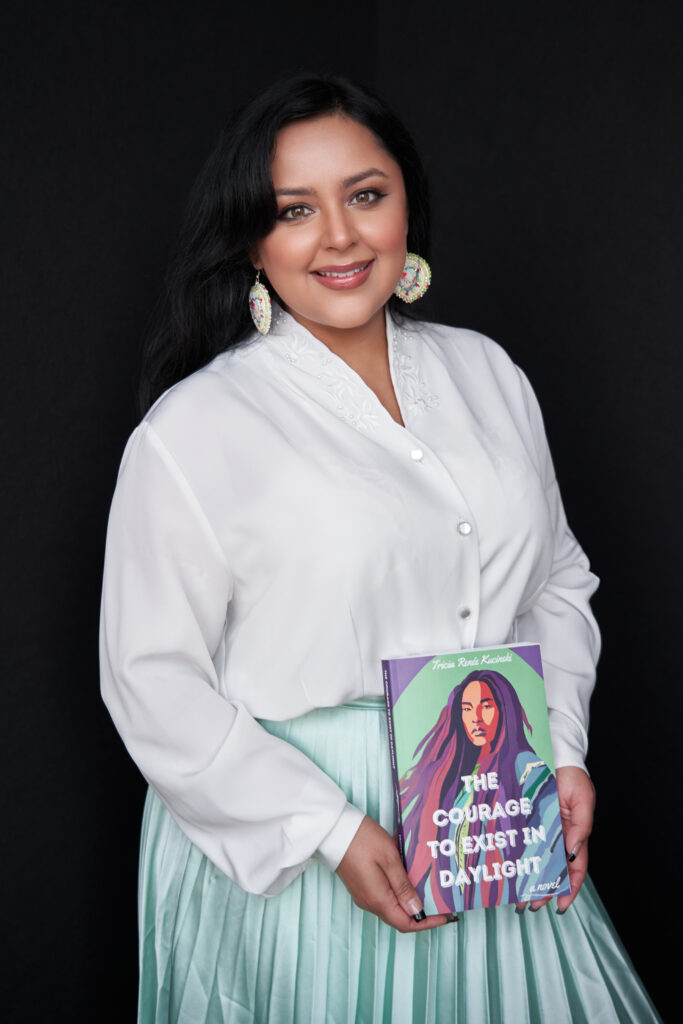
2. How much of your book is based on your real-life experiences on the Wind River Indian Reservation?
My book is in the autobiographical fiction genre, so a significant amount is based on my own experiences. However, I studied fiction writing, and a primary objective of writing the book was to tell a great, well-rounded story. That meant I needed the flexibility to make some creative departures.
Also, more importantly, I had my mom’s blessing to draw on her life and experiences in my writing, with the promise that I would change her name and other details.
3. Can you tell us about the significance of your late mother in your book and in your life?
I was very close to my mom, and I credit much of my strength of character and achievements to her. She was an extremely loving, assuring person, and I owe her quite a lot to her for who I am as a woman. I don’t think I’ve met another person who could see and understand me so precisely in terms of my personhood, and offer total and unwavering love and acceptance.
It took several years to finally process the grief of her passing, and I consider my book at least a little bit of justice for some of the traumas and indignities she experienced.

4. What challenges did you face while writing about such personal and emotional topics?
I started the book when my Mom was still alive, and I didn’t really know what direction it was going. I was very angry with her, though, and my writing was much more flippant and sarcastic than I wanted it to be. It was a disservice to the story, really, and unkind to her in a way that made me more ashamed than proud.
After she passed, it was a handful of years before I was ready to face my overwhelming grief. After a lot of tough years in therapy, I was ready to get to work, and I was able to tap into that anguish and give it a purpose.
5. How do you navigate and portray the complexities of mixed race identity in your book?
It’s really dang hard! Especially having grown up in Wyoming where it was pretty starkly white people and Native Americans, and then moving to Chicagoland where people think Native Americans are extinct. My primary goal was to highlight Native invisibility, and also present an objective view into what it can be like from both sides.
So many people have mixed-race identities and can relate to the rejection, confusion, and even bigotry that can come with it.
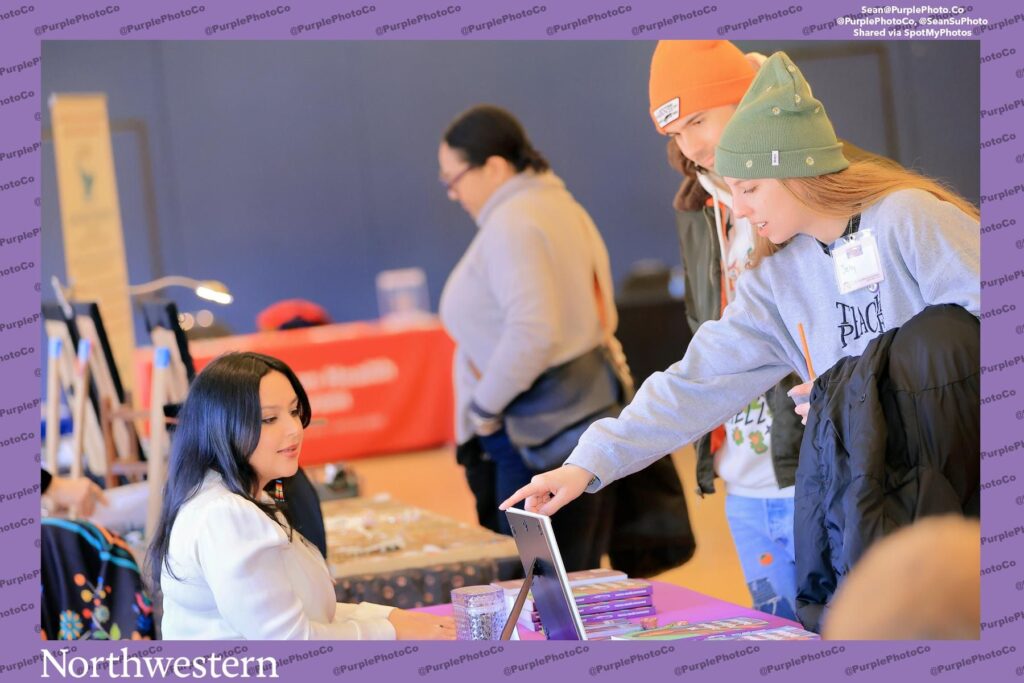
6. What do you hope readers will take away from your story, especially those dealing with grief and adversity?
Grief changes you in a really permanent way, but you can’t let it win. You can’t let sadness and anger consume you. You need to find it in yourself to reach for joy as much as you can. You can’t strip the sadness off of you or put it down at the end of the day, but you can overwhelm it with other thoughts and feelings. I think of my bad memories and grief as the monster in my brain, so I get up and find a worthwhile way to engage with the world as much as I can, and that purpose keeps the monster at bay.
7. Can you describe the burial ceremonies mentioned in your book and their cultural importance?
The ceremonies in my book are specific to Eastern Shoshone customs, and those of my family. There’s quite a lot involved in the burial ceremonies, but in essence, the ceremonies are to help the deceased person’s soul complete their journey, and guide loved ones through their mourning. Parts of the ceremony involve a wake in a teepee, burning a fire all night long to help their soul find their way back to their body, and a cedaring ceremony and wailing women for healing.

8. How has writing “The Courage to Exist in Daylight” helped you in your own healing process?
Writing this book helped me understand where my grief and anger was coming from, and it helped me see my Mom as a flawed but remarkable person. It helped me see her not just as my mom, but a woman and person with hopes, fears, shortcomings, and really significant and special strengths.
I won’t spoil the ending, but I wrote an epilogue of which many people have wondered if it’s true to my life. It’s not, but we’ll call it wishful thinking.
9. What advice would you give to women who are struggling with their own identity and past traumas?
Not only are you enough, but you are everything and you are whole. You aren’t made of tiny, haphazard pieces, or a fraction of your identity. Don’t give anyone the power to make you feel small or lacking.
I wrote this about my mom, but it’s relevant here:
When someone wanted to reduce her, there was always, always something left.
Let us not give any single person, or any single event, the power to reduce us.
10. How do you balance authenticity and sensitivity when writing about your personal experiences and cultural heritage?
This can be hard, especially when I want to ensure I’m being respectful and not painting a whole group of people in a negative light, while also drawing on real and true-to-life experiences. I think it comes down to honoring your culture and honoring yourself. I try to ask myself if something needs to be said, or has a good reason to be said. Above all else, we should try to be sensitive and well-meaning.
11. Can you share any feedback or reactions you’ve received from readers that have touched you deeply?
Oh, so many. The reception of my book has been the most uplifting experience of my life. So many people have told me they struggle with multi-racial identities and felt seen and understood. People also told me how they personally related to various themes in the book, like abuse, or parents and family with substance use struggles. Releasing the book made me feel like some of my toughest life experiences were on a billboard in Times Square, so the outreach and connection from readers was really soothing.
12. What has been the most rewarding part of sharing your story with the world?
Telling the world, “you’ll never believe what I’ve been through”— and they did. 🙂
13. How do you handle moments of self-doubt or writer’s block during your creative process?
Self-doubt is a really difficult, chronic part of being a writer. Sometimes I think I wrote the best line ever crafted, and sometimes it feels so embarrassing to fancy myself a writer! I suggest finding at least one trusted beta reader and believing them. If they suggest something is stellar— believe them! Needs work? Believe them! And if you disagree, well, there are no rules and you are ultimately in charge.
Not to sound annoying, but I don’t get writer’s block. My mind never powers down; it’s actually a whole other burden.
But I do believe in writing “crap”. If you hit a wall, just keep writing…crap. Get anything on the page, even fragments of thoughts. Then take a break and revisit it with fresh eyes so you can see exactly why it’s bad. Then make it good.
14. In what ways do you think your book can contribute to the broader conversations about grief and identity in society?
Even though my book is specifically about Native American issues and more specifically, my tribe and family, the themes are truly universal. Grief, losing a parent, and not knowing where you fit in or how to find and connect with your “people”, are just baked into the human experience.
15. What future projects or themes do you hope to explore in your writing?
I will always have a biting opinion on social and systemic issues. I’m sure that will always be in the fabric of anything I write. I am currently writing my second novel about the Missing and Murdered Indigenous Women/Relatives (MMIW/MMIR) epidemic.
In writing such heavy topics, I have tried to have an element of comedic relief. In this case, my main ensemble of characters are late-teen siblings, so there’s a lighthearted and youthful element of relief to it. I am sure I will always write about the human condition, and all its tragedies and triumphs.
I took a Science Fiction Writing class once that I was spectacularly bad at, so maybe I’ll explore that again someday. haha
https://www.facebook.com/profile.php?id=100092317617010&mibextid=ZbWKwL
https://www.threads.net/@_chi_doll

